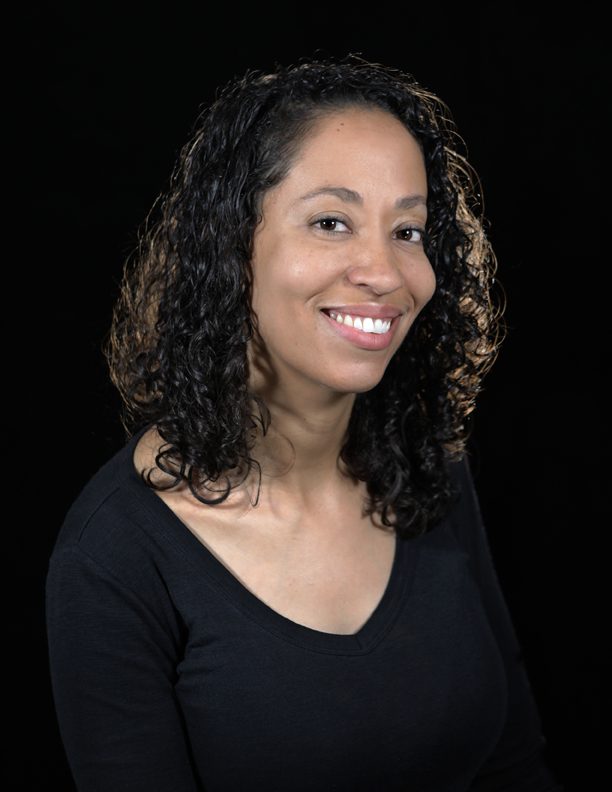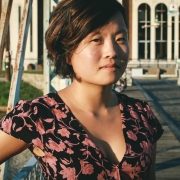Q & A With Adrienne Perry
By Chantal Gordon
Your work establishes a remarkable intimacy with the reader, and so early on. (From your fiction piece in “More of the World This Way” in Black Warrior Review: “I know what you’re thinking: Gray’s Anatomy. Not the show with a Grey, but the body and all its systems…”) What methods do you use to achieve this kind of rapport?
In this instance, addressing the reader as “you” may contribute to that sense of intimacy. In drafting this story, I imagined you warmly and outside of any imperative. The you also represents my general faith in readers as fellow travelers living lives more complex and intersecting than any piece of prose I might share. The reader is given credit for having thoughts and a body, for having depths of knowledge and experience outside of my own. The confessional element in my work can also suggest a rapport, but I’m more interested in the kind of vulnerability and play that keep the sense of a confession as exhibitionism at bay. These feel less like methods and more like a set of values that inflect what and how I write.
In your nonfiction piece “A Dark and Simple Place” in Indiana Review, you tell the story of Uncle Richie, who finally moved out of your family’s home in Cheyenne, WY, for a job at a meatpacking plant in Greeley, CO. What inspired you to tell this story? And why as nonfiction?
My storytelling impulse arises where character and setting intersect. Uncle Richie was a stabilizing, quirkily wonderful presence in my childhood and I wanted to pay homage to him by describing the way part of his story played out on the high plains of Cheyenne and Greeley—two haunted settings at once roughly beautiful and painfully everyday. I was also interested in writing about the lives of black men in Wyoming, returning to the 80s and 90s of the last two centuries to do so. At the time, I wrote toward memory. I had questions about family and home as I started the essay, but they were inchoate. If I had written the story as fiction, my sense is that I would have done so from a desire to hide something about myself or the people and places I love. As a person who has hidden too frequently and too well, that was a dangerous possibility.
This piece is intercut with text and questions from a “Meatpacking Testbook.” How did these illuminating snippets find their way into this essay?
I came across the “Meatpacking Testbook” around the time I’d been reading experimental, international poetry in translation. Don Mee Choi’s translations of Kim Hyesoon and Sawako Nakayasu’s Mouth Eats Color, among others, had begun to upset my compulsion toward narrative cohesion, smoothness, and incessant sense making. As I revised “A Dark and Simple Place,” I researched meatpacking plants. The questions in the testbook resonated eerily with Uncle Richie’s story. Through them, double meanings, especially regarding labor and institutionalized violence, entered the essay. To play with fragmentation, intertextuality, and form as poets and translators do, I stripped lines from the testbook and dropped them into my text, manipulating them until they satisfied my eye and ear.
Even though you’ve working in family lore, did anything surprise you in the process of writing it?
Writing, particularly nonfiction, makes clear how fallible memory is, how some memories require others to access. For example, after the essay was published, a family member shared that one of the other issues involved in Uncle Richie’s departure was his weed smoking in the basement. The weed didn’t surprise me, but I was surprised this detail didn’t come out during earlier conversations. For a minute, I entertained changes I might have made to the essay with this information. But, all writing is selective and I reminded myself that I had edited out other relevant details during revision.
More generally, what’s your process for unearthing memories you might want to examine in nonfiction?
To start, I freewrite, either by longhand or by typing on a manual typewriter. The associations and images that arise through this process frequently feel fresh and specific, perhaps because they’re less censored. Walking also helps me unearth memories.
Typewriter! Ooh, why a typewriter?
When I’m writing on a typewriter, I find I look outward and inward more, perhaps because I’m not staring at a screen. I censor myself much less on a typewriter and the freewriting I do on typewriters invariably pleases me, feels fresh and uncontrived regardless of its “quality.” The machine’s clack clack and the tapping down of its keys are likewise a pleasure.
Congratulations on your Elizabeth George Foundation grant! How do you feel? What are you working on next?
Thank you! How do I feel? Hugely grateful to the foundation. Their financial support, alongside that of Inprint and the University of Houston, has been pivotal in allowing me the time and space to work on my novel. In terms of my current and future projects, I’m chipping away at said novel, as well as essays that combine family and Wyoming history in the manner of “A Dark and Simple Place.” Currently, this involves revising an essay about serving as my sister’s Lamaze coach when I was 14 years old.
You just received your PhD in fiction from the University of Houston Creative Writing Program. What made you decide to do it, and what is it like to get your PhD in creative writing?
My Essay and Extra semesters at Warren Wilson prompted me to apply for a PhD in Literature and Creative Writing. During those terms, I particularly enjoyed close reading, textual analysis, and developing an argument. The prospect of teaching writing or literature, in addition to continuing to sharpen these skills, appealed to me. I was eager to deepen what I’d learned through my MFA, and I wanted to do so around other scholar-writers.
Describing what it’s like to get a PhD feels tricky, not because there’s anything fancy about it. This doctoral degree was a chance to hone a set of rhetorical, theoretical, critical, and technical skills, yet it struck me as a test of endurance more than anything else. However, the program led to my study of translation studies, Early American literature, literary publishing, and theory—all of which I’ve come to dearly love. As my mother might say, these interests were unexpected dividends of the PhD.
As of this fall, you will be a Professor of English at Villanova University. Can you give us a little teaser of who/what you’re excited to include in your curricula?
My fall courses are Introduction to Creative Nonfiction and a course on literary publishing and small presses. All of my syllabuses prioritize work by women and underrepresented writers and voices—from folks of color, to queer writers, and literature in translation. At UH, I taught portions of Morrison’s Playing in the Dark: Whiteness and the Literary Imagination, which I imagine teaching alongside Alexander Chee’s recent essays. Literary Publishing in the Twenty-First Century, published by Milkweed, is an illuminating read. A colleague recently introduced me to the 1960s journal El Corno Emplumado, and I imagine weaving in that vanguard work as well.
Adrienne Perry (fiction, 2013) is a Hedgebrook alumna, Kimbilio Fellow and member of the Rabble Collective. Her work has appeared in Copper Nickel, Black Warrior Review, Indiana Review, Tidal Basin Review, among others. In 2018 she received her PhD in fiction from the University of Houston Creative Writing Program, and will be a Professor of English at Villanova University beginning in Fall 2018.




